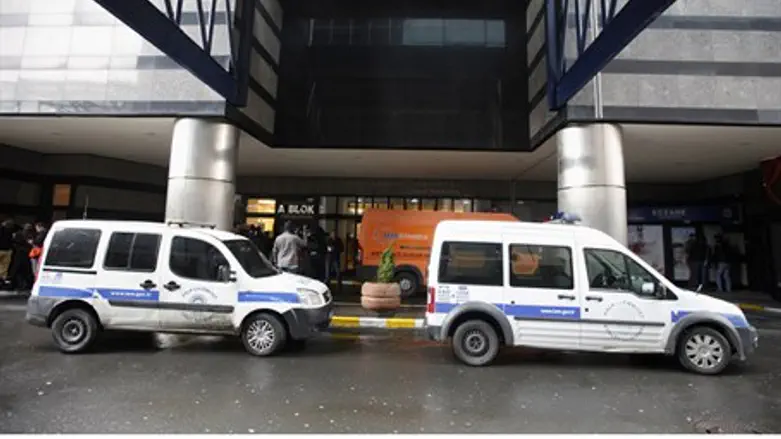
Governments lined up to offer their support after masked men armed with Kalashnikov automatic rifles opened fire at the offices of French satirical magazine Charlie Hebdo Wednesday, in what President Francois Hollande said was a "terrorist attack," according to AFP.
British Prime Minister David Cameron condemned the shooting as "sickening" and "barbaric," while German Chancellor Angela Merkel called it "despicable"; sentiments reflected across European capitals.
Russian President Vladimir Putin "resolutely condemns terrorism in all its forms", a spokesman said.
Israeli Foreign Minister Avigdor Lieberman also sent his condolences, saying: "Israel identifies with France's pain."
"Terror and terrorists must never be permitted to sow fear in the free world and the West must stand united and determined in the face of this danger," he said.
There was also condemnation from Muslim states of the gunmen, who were heard to shout "we have avenged the prophet" and "Allahu akbar" ("God is greatest"), according to French police.
The massacre took place after years of confrontation between Charlie Hebdoand Islamists infuriated by what they saw as the publication's attacks on their religion.
Turkish Foreign Minister Mevlut Cavusoglu said his country condemned all forms of "terror", but said terrorism and increasing Islamophobia in Europe were "interconnected."
"We must fight against increasing racism, xenophobia and Islamophobia in Europe which threaten all our values. We must also fight against any form of terrorism," he said.
"Completely defenseless and innocent people became the victims of what appears to be an attack on free speech," said Denmark's Prime Minister Helle Thorning-Schmidt.
"The French society, like ours, is open, democratic and based on a free and critical press. Those are values that are deeply rooted in all of us, and which we shall protect."
European Commission President Jean-Claude Juncker said he was "profoundly shocked by the brutal and inhuman attack", which was "an act of barbarism".
NATO Secretary General Jens Stoltenberg used similar language, describing it as a "barbaric act and an outrageous attack on press freedom".
'A black day'
Al-Azhar, Sunni Islam's most prestigious centre of learning, called the attack "criminal" and said "Islam denounces any violence", according to Egyptian news agency MENA, while the Arab League also condemned the attack.
The Committee to Protect Journalists said it was a "brazen assault on free expression in the heart of Europe", while Reporters Without Borders called it a "black day."
Charlie Hebdo's editor-in-chief Stephane Charbonnier, known as Charb, and the cartoonists known as Cabu, Tignous and Wolinski were among those killed.
"The scale of the violence is appalling," said Robert Mahoney, deputy director of the New York-based Committee to Protect Journalists.
"Journalists must now stand together to send the message that such murderous attempts to silence us will not stand."
Christophe Deloire, secretary general of Reporters Without Borders, said: "A newsroom attack with machine guns is a type of violence we witness in Iraq, Somalia or Pakistan.
"This terrorist attack marks a black day in the history of France."
Stephan Oberreit, director of Amnesty International France, added: "It is an atrocity that sought to kill journalists, suppress freedom of expression and sow fear."
Security was reportedly stepped up Wednesday at the Danish newspaper that itself provoked angry and sometimes deadly protests worldwide by publishing a series of cartoons of the Prophet Mohammed in 2005. Charlie Hebdo had reprinted the cartoons in 2006.